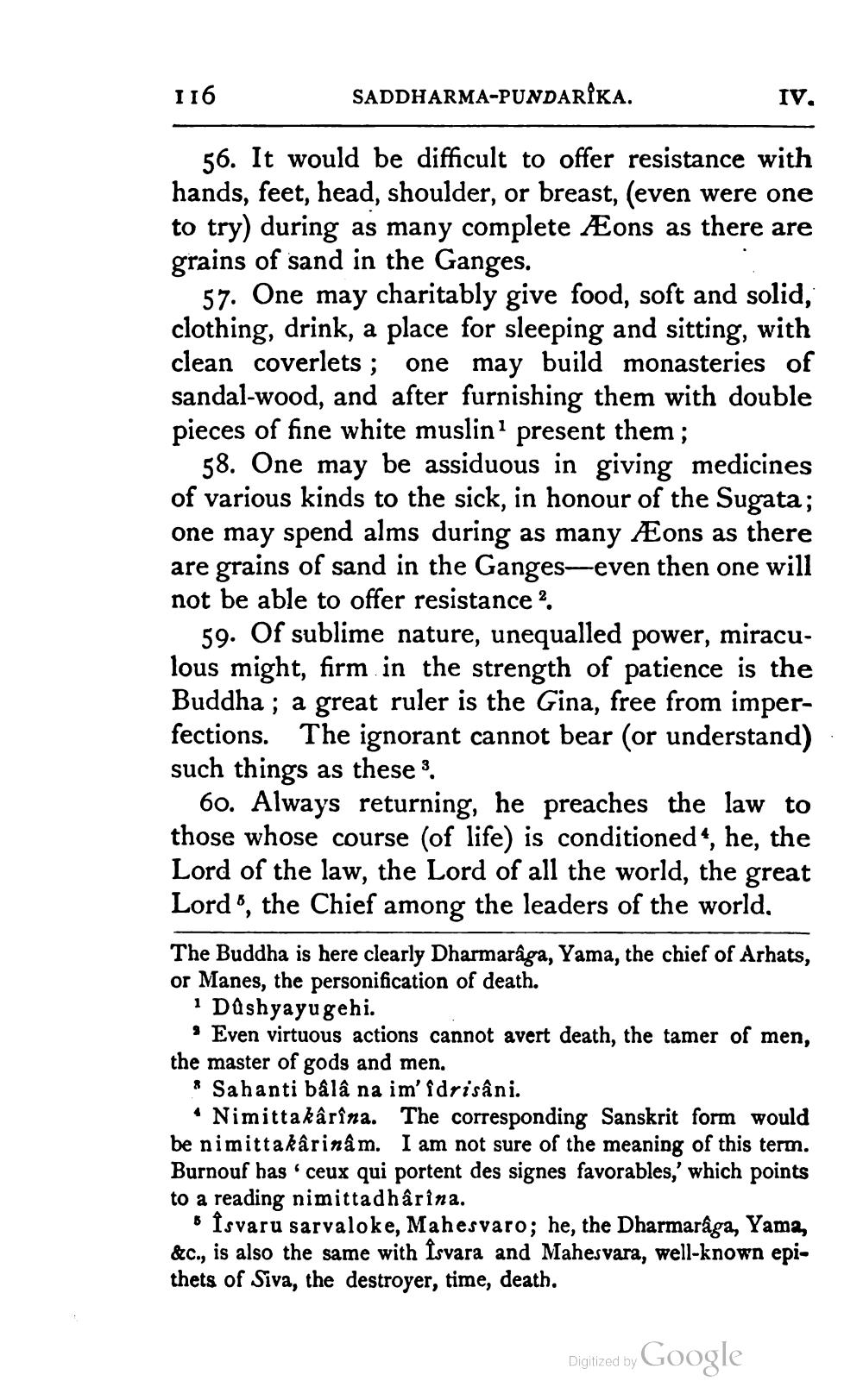________________
I16
SADDHARMA-PUNDARÍKA.
IV,
56. It would be difficult to offer resistance with hands, feet, head, shoulder, or breast, (even were one to try) during as many complete Æons as there are grains of sand in the Ganges.
57. One may charitably give food, soft and solid, clothing, drink, a place for sleeping and sitting, with clean coverlets; one may build monasteries of sandal-wood, and after furnishing them with double pieces of fine white muslin present them;
58. One may be assiduous in giving medicines of various kinds to the sick, in honour of the Sugata; one may spend alms during as many Æons as there are grains of sand in the Ganges-even then one will not be able to offer resistance ?
59. Of sublime nature, unequalled power, miraculous might, firm in the strength of patience is the Buddha ; a great ruler is the Gina, free from imperfections. The ignorant cannot bear (or understand) such things as these
60. Always returning, he preaches the law to those whose course (of life) is conditioned 4, he, the Lord of the law, the Lord of all the world, the great Lord", the Chief among the leaders of the world, The Buddha is here clearly Dharmarâga, Yama, the chief of Arhats, or Manes, the personification of death.
Dashyayu gehi.
Even virtuous actions cannot avert death, the tamer of men, the master of gods and men. * Sahanti bâlâ na im'idrisâni.
Nimittakârîna. The corresponding Sanskrit form would be nimittakârinâm. I am not sure of the meaning of this term. Burnouf has ceux qui portent des signes favorables,' which points to a reading nimittadhârina.
o Isvaru sarvaloke, Mahesvaro; he, the Dharmarâga, Yama, &c., is also the same with Isvara and Mahesvara, well-known epithets of Siva, the destroyer, time, death.
Digitized by Google




